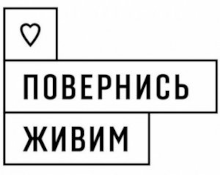


TOR Real Time Review Consultant
06.10.2022
1. Context:
Armed conflicts in Ukraine broke out in mid-May 2014 when Russia annexed Crimea and started backing separatists in the Donbas region of eastern Ukraine.1 Between 2014 and 2022, Ukrainian government forces fought Russian-backed separatists for control over much of the two heavily industrialised regions of Donetsk and Luhansk, also known as Donbas. One third of the regions’ territory, its most urbanised part, was occupied by two Russian proxy statelets, the self-described Donetsk and Luhansk People’s Republics (DPR and LPR).2
The conflict remained in a sort of a frozen state until the early hours of 24 February 2022, when Russia proceeded with an invasion of Ukraine. Russian troops now control about 20% of Ukraine’s internationally recognized territory, though Russia was not able to realize its stated objective of taking full control of the country.
In Ukraine and neighbouring countries, responses by national and local governments, civil society and local communities have dominated since the beginning of the crisis. So far the system has recovered well after the initial shock and the authorities are determined to keep it that way.
That the system survives is not in the least thanks to the massive involvement of the civil society. Existing and well-established non-profit organisations as well as improvised citizen/private volunteers’ initiatives mushroomed throughout the country. Together they managed to respond to an important share of the needs, and much quicker and more efficient than INGOs.
There has nonetheless been a large-scale reaction by the international community. Governments committed important material and financial resources, the general public has donated vast sums of money, institutional funding agencies and private donor organisations have been doing efforts to channel important funds to places and people that were affected by the war, often via UN agencies and international humanitarian organisations (INGOs). The intervention of one of these donor organisations (SV) and one of its implementing partners (Intersos) is the subject of this RTR.
PRESENTATION OF THE PROGRAM TO BE EVALUATED
• ✓ Title:Ukraineresponse in L’viv,Vinnytsia and Poltava
• ✓ Duration: March 2022 to October 2022
• ✓ ProjectLocationsandtargetgroups:34.790IDPsinL’viv,Vinnytsia,Poltava
• ✓ Totalbudget:385.321+1.000.000=1.385.321EUR
• ✓ Sectors of intervention: Shelter, NFIs, Health
• ✓ Projectstakeholders:INTERSOS,SV,beneficiaries,localauthorities
• ✓ Project specific objectives: Health facilities and shelter support in L’viv, material assistance (NFIs, HKs) and health support to IDPs in Vinnytsia and Poltava, through an integrated protection approach
• ✓ Expected results / indicators and activities: please refer to the project proposals and details in the annex.
For the full context and project description reference will be made to the different project documents which will be provided during the evaluation inception phase.
EVALUATION OBJECTIVES
The purpose of the evaluation:
Ukraine is a new operational area for SV and new partnerships were established. While some partners already were present in Ukraine (PIN/PHA), others have recently set up their programs (INTERSOS).
Due to the rapidly changing situation, the main focus has primarily been on implementation.
This real time review’s objectives are 1) learning and improvement, 2) informing SV and INTERSOS’ programs and strategy in Ukraine. Both objectives should contribute to an improved response to the needs of the affected population.
General objective:
- Identify lessons learned and provide feedback on what is working well in the response, what is not working well and how to improve the response in the future. This will provide input for SV’s and INTERSOS’ Ukraine strategy, in order to make the response more relevant and appropriate to the needs of the affected population.
Specific objectives
1. Institutional governance: How did SV’s approach to the Ukraine response impact the projects?
- Review SV’s partner approach in responding to the Ukraine war; was there enough flexibility for the partners? Were the risk appetite and quick vetting enabling/disabling factors? Did SV’s approach also have negative effects (e.g. on project quality or partner relations)?
- Identify opportunities for increased engagement with local Ukrainian partners. How to ensure the selection of local Ukrainian organizations with an acceptable level of neutrality and governance structure? How can we improve partnership between INGO and Local actors both civil society and government services?
- Identify important input for SV’s MEAL procedures to improve the remote monitoring of the projects in Ukraine
2. Project impact: How did INTERSOS’ response impact the beneficiaries?
• - Evaluate the appropriateness and timelines of the INTERSOS’ projects; is a shift in programming or approach required to address the needs of the affected population?
• - Review accountability practices; how was accountability to the affected population ensured? Were different social groups included? What was the power of beneficiaries to influence the response? How can this best be integrated in following projects?
3. Overall humanitarian response: How is SV and INTERSOS’ response situated within the larger humanitarian response in Ukraine?
- Provide meta-review of the humanitarian response in Ukraine (focused on the project region) and situate the findings of SV and INTERSOS’ approach within this response. This includes the challenges and opportunities for local and international NGOs, and in particular the way objectives:
humanitarian actors have engaged with local organizations (from the perspective of local actors), but also how different local actors (NGOs, authorities, etc) relate to each other (risk of de/legitimizing certain institutions). How organizations have dealt with humanitarian access in government controlled, front line and Russian controlled areas, humanitarian principles and solidarity) And how organizations’ neutrality and solidarity have impacted the response.
For SV, the RTR will be used to inform the response strategy for Ukraine, including preferred partners, aid modalities, localities, etc. Furthermore, it will be used to review and identify learnings for SV’s approach in new countries and with new partners
For INTERSOS, this RTR will contribute to the finetuning the programmatic framework and strengthening partner relations.
EVALUATION METHODOLOGY:
The evaluation team, consisting of a local and/or international consultant(s), is expected to employ a methodology for unbiased results, designed to capture information relating to needs perceived by beneficiaries and addressed by INTERSOS, projects’ objective(s), management and performance in order to address the evaluation questions. The team should consider a range of methods, which may include (but need not be limited to) the following:
1.1. Desk-based literature review: meta-analysis and summary of reports addressing humanitarian context, needs, missed opportunities, etc, analysis of project proposals and workplans, baseline and existing M&E data, performance indicators and budgets and other broader regional and contextual background material
1.2. Secondary data analysis: analysis of data already collected by the project staff
1.3. Semi-structured interviews (at least 30): key informant interviews with staff, local
stakeholders, direct beneficiary groups, and the affected population. Since the response has changed significantly since the start and initial beneficiaries have moved away, including different groups will allow a reconstruction of the first months and the reflections of future developments.
1.4. (Participatory) Focus group discussions: facilitated small group meetings on specific issues and topics to solicit comments and responses around key issues arising from interviews and secondary data analysis. Preferably using more participatory methods.
1.5. Direct observation of project interventions and relationships between different stakeholders
1.6. Meetings and consultation with a wide range of other key stakeholders such as INTERSOS and SV staff but also external stakeholders who were of priority in the implementation of a coordinated intervention. An after-action review session with INTERSOS staff is encouraged
The consultant’s methodology should rely heavily on the full participation of project beneficiaries, INTERSOS staff, local organizations and local authorities for successful collection and analysis of quality data. Engaging with local authorities should be done carefully and in close collaboration with INTERSOS. Participatory data collection and analysis methods (such as matrix ranking and scoring) that enable beneficiaries and other project stakeholders to contribute towards the analysis of project results and experiences are strongly encouraged.
The evaluator is expected to situate the evaluation effort within the OECD DAC3 criteria and the CHS commitments.
STAKEHOLDER INVOLVEMENT
The RTR should have a strong component of Interactivity and continued dialogue with staff in-country and HQ during the implementation. The consultant is expected to feedback findings mid-way, so that the country and HQ teams can identify missing elements in the analysis, where needed. It will also enable the consultant to make the RTR as meaningful to learning as possible.
The principal intended users of the evaluation are the donor (SV), INTERSOS, as well as SHO as the project funding source.
INTERSOS Country Office staff and SV staff will provide the evaluation team with all the necessary background documentation and data available from the project and in relation to INTERSOS to conduct desk-based assessments in preparation for the fieldwork phase. INTERSOS staff will accommodate the evaluation team’s needs and facilitate the fieldwork including access to the relevant communities and project sites for data collection and setting up meetings with beneficiaries, community leaders, local authorities, relevant INTERSOS staff and other key stakeholders. The evaluation team will coordinate with SV MEAL advisor and Ukraine Team Lead and should discuss any technical and methodological matters that arise.
The evaluation team is expected to hold post-fieldwork meetings with SV and INTERSOS staff and other stakeholders to present and discuss preliminary findings and to engage the target communities in discussions about the findings. Draft reports are expected to be shared with INTERSOS staff, HQ staff and SV staff to incorporate feedback and ensure factual correctness before final versions are signed off prior to completion of the final evaluation report. The final version of the evaluation report will be provided to both SV and INTERSOS.
EXPECTED DELIVERABLES
The evaluation team is expected to deliver the following key deliverables:
• Inception Report (of a maximum of 5 pages) produced by the lead consultant within two weeks of contract being signed detailing the evaluation team’s intended methodologies, activity workplan, team responsibilities and overall analysis of the desk-based review;
- mid-way In-country workshop to discuss preliminary results and possible adjustments to the scope of the RTR
• Draft report of the RTR before the consultant ends the research.
- Project Evaluation Report with detailed findings and recommendations specific to this project;
- Summary of Evaluation Report for wider distribution (including in-country sharing with local stakeholders, such as beneficiaries, local authorities, etc.)
The Project evaluation report must be written in English and not exceed 25 pages (excluding annexes). The report must be written in Word and submitted in one stamped paper and one electronic copy. The draft report will need to be presented to INTERSOS staff and SV for final input and fact checking before the final version is submitted.
The written report should be based on (but not limited to) the following framework: 1. An executive summary (2-3 pages maximum)
2. A methodology section outlining the inception report content and planning process with INTERSOS, make-up of the team (e.g. sectoral expertise, local knowledge, gender balance) and its appropriateness and independency for the evaluation and any potential biases.
3. A constraints, limitation and challenges of the evaluation section
4. A context analysis of the overall humanitarian response in Ukraine and how the projects are situated within it.
5. A findings section in line with the set evaluation objectives to be marked and discussed in detail
6. A recommendations and lessons learned section following the analysis of the findings and the discussion with key stakeholders of the preliminary findings
7. List of Annexes, including to the minimum: the present ToR, the inception report, sample of the data collection tools used, a list of sources of information used/documents reviewed, any relevant graphic material that could not be placed in the report.
QUALIFICATIONS
SV and INTERSOS will select the evaluator(s)/consultant together.
The selection will follow a competitive bidding process, which will be based on a request for questions (inclusive both of a technical and financial offer) published online on relevant website(s). Following a pre-screening of the received offers, those meeting the minimum requirements will be ranked on both the technical and financial offers, following also a panel interview of the shortlisted consultants/firms.
SV will make every effort to ensure there is no conflict of interest on the basis of the consultants selected in order to guarantee independence and objectivity. The consultants have to possess a multidisciplinary mix of evaluative and programmatic skills, qualifications and experience.
Specific skills and experience sought:
• Significant demonstrable experience in the evaluation of humanitarian projects and/or sociology and anthropology work, including field-based data collection, analysis and reporting and experience of conducting desk-based evaluations emergency response projects within a conflict environment
• Extensive knowledge of humanitarian contexts, preferably with knowledge specifically on Ukraine and/or lived experience.
• Relevant academic qualifications and training in the related fields.
• Significant experience with qualitative research methodologies, particularly involving semi-structured interviews, focus groups and qualitative analysis.
• Excellent communications and presentation skills.
• Ability to write clear and sensible reports (examples of previous work shall be submitted).
• Fluency in English and the national language is essential.
• Understanding of national humanitarian mechanisms and context is preferable
• Ability to manage the available time and resources and to work on tight deadlines ·
Independence from SV, INTERSOS, project stakeholders or other parties involved · National consultants/institutes are particularly encouraged to apply.
No data can be used by the consultant concerning this study without the written permission of the partners. The consultant acting as service provider will make sure to present itself as such for all discussions held within the framework of the consultancy.
The consultant immediately agrees to respect all specific security instructions of INTERSOS and most recent Government directives as well as to operate in line with the INTERSOS’ PSEA and child protection policies.
TIMEFRAME:
Publication of ToR and reception of offers: 31 September – 17 October 2022
Interviews with prospective candidates: 24 October – 28 October 2022
Contracting: 31 October – 4 November
Start of consultancy: 4 November 2022
BUDGET: 25 days,
Renumeration dependent on experience and technical offer of candidate.
HOW TO APPLY:
Please send an offer with references to similar work accomplished, qualifications, proof of incorporation (invoicing capacity), and a price offer to [email protected] no later than 17 October, 2022 at 8:00 AM CET
The selection process will consider the following three criteria: the expertise of the evaluator(s), the methodological proposal and approach and the financial proposal.
Interested and qualified consultants are expected to submit the following documents which will form part of the pre-selection recruitment process:
-
Brief profile of the consultant (or organisation, institute, company). Proven samples of the previous similar work with INGOs and/or UN agencies preferably.
-
Technical proposal: brief explanation on the consultant’s previous experience in this kind of work, outlining an understanding and interpretation of the ToR and methodologies including sampling procedure, data collection, data analysis plan, quality assurance, management and tools to be used and draft time plan on how the work will be done.
-
Financial Proposal calculated in Euro, outlining consultant’s daily rates and break down of all other costs associated with the assignment. SV/Intersos will not cover any travel related costs.
The consultant shall be responsible for his/her income tax and/or insurance during the assignment.
A contract will be signed by the consultant before commencement of the action. The contract will detail terms and conditions of service, aspects on inputs and deliverables.








Коментарі